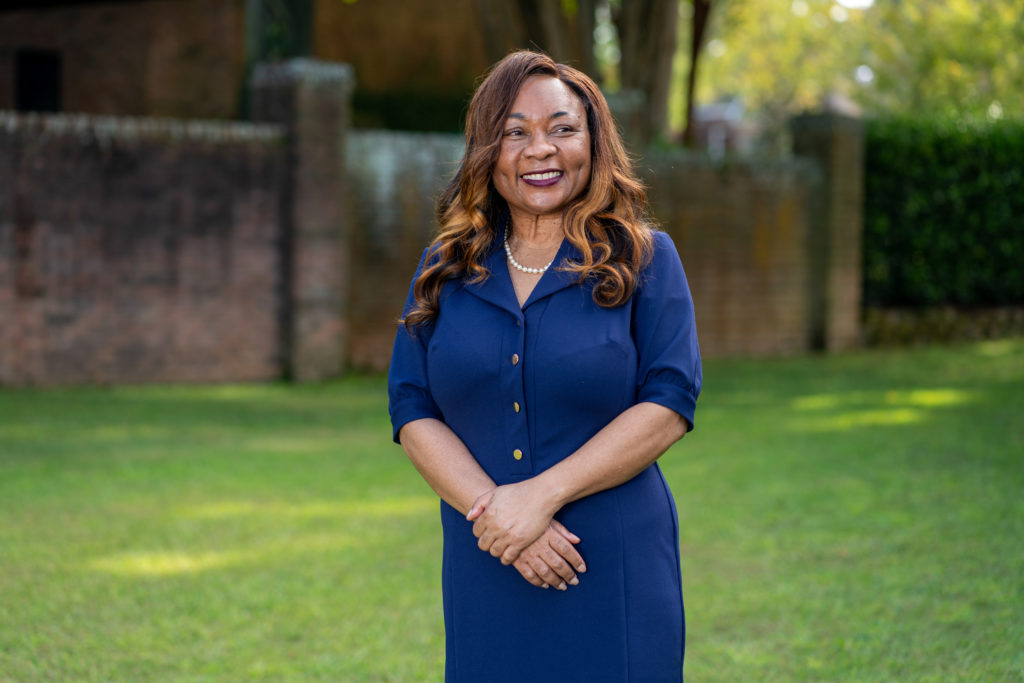Catherine Coleman Flowers
I first met Catherine Coleman Flowers when she was a high school student in Lowndes County in 1975, and I was a reporter at the Alabama Journal newspaper in Montgomery. Even then, she was working to improve the education of public school students and was recognized for her activist spirit as a teenager. Now, nearly five decades later, Flowers is still working to improve her community, documenting the inadequate septic systems in her county that cause raw sewage and toxic waste to back up into homes, resulting in exorbitant bills and creating a health hazard. Her efforts earned her the prestigious 2021 MacArthur Fellowship, which carries a $625,000 prize. She is the only member from Alabama in the current class of 21. The award announcement noted, “In the midst of civil unrest, a global pandemic, natural disasters, and conflagrations, this year’s class of 21 exceptionally creative individuals offers a moment for celebration. They are asking critical questions, developing innovative technologies and public policies, enriching our understanding of the human condition, and producing works of art that provoke and inspire.” Flowers is also the author of Waste: One Woman’s Fight Against America’s Dirty Secret (2020, The New Press), which details her ongoing fight to secure basic sanitation for poor, rural areas of the state. She is founder of the Center for Rural Enterprise and Environmental Justice and since 2008 has been rural development manager for the Equal Justice Initiative. Most recently, she was named by President Joe Biden to the inaugural Environmental Justice Advisory Council. Although she stays busy working with scientists and other experts to find an affordable, workable solution to wastewater issues not only in Alabama but nationwide, she was able to answer a few questions for us. – Lenore Vickrey

How did growing up in a rural part of Alabama influence your career path?
Growing up in rural Alabama made me more appreciative of the natural world and made me community oriented. It influenced my appreciation for nature and my desire to care for the earth and for people.
What motivates you to work so tirelessly on behalf of others who need help?
I am inspired by the example of my parents who were servant-leaders and by my faith which instructs me to care for “the least of these.”
What was your reaction when you heard you had won a MacArthur Genius Grant?
I was stunned and grateful to be acknowledged. I had to put the phone down and do the holy dance in celebration and gratitude.
The grant is an honor for the state and for the work you’ve done. Have you thought about how the cash stipend could be used?
I will use the grant to pursue technologies that will change the wastewater treatment paradigm.
You write in your book, Waste, that the fight for adequate wastewater treatment shouldn’t be a partisan issue, and that some of your earliest help came from conservatives Bob Woodson and former Sen. Jeff Sessions. Do you think this kind of bipartisan support is still possible?
I have encountered people on both sides of the aisle that have been sold failing wastewater treatment technologies. There is a desire across the board to find technologies that will work, come with a long-term service warranty, and will not fail due to weather events. When we create this technology, people will want it because it really works.
What inspires you to keep speaking out and standing up for others who don’t have a voice?
I am inspired by the love of justice and fairness, as well as the many examples in my life such as my parents, Martin Luther King, Jr., Rosa Parks, Robert Kennedy and Jesus Christ.




